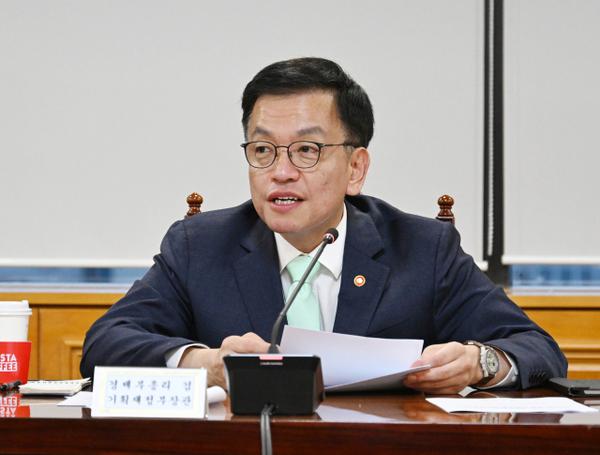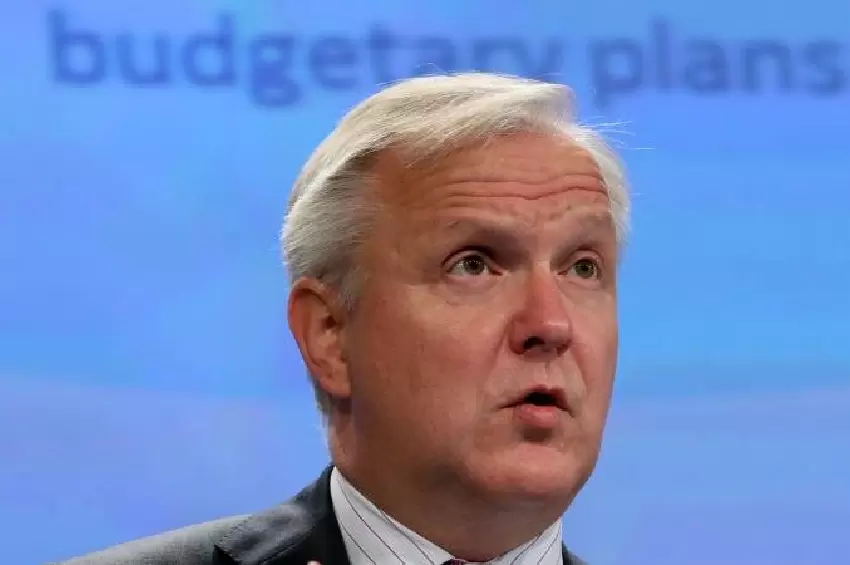A Crucial Six-Month Window for South Korea's Industrial Future
Deputy Prime Minister and Minister of Economy and Finance Choi Sang-mok has emphasized the critical importance of the next six months, describing it as the "golden time that will determine the fate of our industry." He announced, "We will go beyond the policy measures we have used so far and fully support them by mobilizing all available means." This marks a significant shift in the government's approach to industrial policy, moving from a supportive role to becoming an active player alongside companies.

Choi presided over the "Meeting of Ministers Related to Strengthening Industrial Competitiveness" at the Korea Semiconductor Industry Association in Seongnam, Gyeonggi Province, on Nov. 27. This significant meeting, held for the first time in about two years since December 2022, brought together ministers from various related ministries, including the Ministry of Science and ICT, the Ministry of Trade, Industry and Energy, the Ministry of Environment, the Ministry of Land, Infrastructure and Transport, the Ministry of SMEs and Startups, the Office for Government Policy Coordination, and the Financial Services Commission.
"For the past 30 years or so, our industry has maintained its competitiveness by having companies run ahead while the government pushed from behind," Choi noted. "However, looking at examples of major countries where the state takes the lead in industrial competition, we cannot stick to the growth formula of the past." He stressed that the government will now "approach industrial policy from a new perspective."
The meeting addressed several critical issues facing South Korea's key industries, including semiconductors and artificial intelligence (AI). Choi highlighted concerns in the automobile and battery industries regarding the reduction of incentives under the U.S. Inflation Reduction Act (IRA) and the steel industry's worries about changes in the export environment. "We will operate intergovernmental cooperation channels comprehensively to minimize the impact of changes in major countries' industrial policies," he assured.
In a bid to modernize outdated industrial infrastructure, the government announced plans to expand foundational facilities such as power grids and water facilities. Specifically, the government will invest 4.3 trillion won in power facilities and 2.2 trillion won in water facilities to strengthen the semiconductor ecosystem. Additionally, the government will take responsibility for a significant portion of the cost of underground transmission lines for the Yongin-Pyeongtaek cluster, amounting to about 1.8 trillion won. "We will also significantly increase the support limit for specialized complex infrastructure," Choi added.
The government also plans to include research and development (R&D) facilities, such as R&D equipment, in the target for national strategic technology investment tax credits. Discussions with the National Assembly are underway to raise the tax credit rate for national strategic technology investment for semiconductor companies.
Looking towards the future, the government aims to establish an AI innovation ecosystem. Choi announced plans to promote the establishment of a national AI computing center through a public-private partnership with a total scale of 4 trillion won by 2030. "As soon as next year's budget is finalized, we will invest 400 billion won in AI computing infrastructure through a combination of equity investment and loans," he said.
South Korea's economic development model, often referred to as the "Miracle on the Han River," has historically relied on a combination of government-led industrial policy and strong private sector growth. The government's active role in supporting key industries through subsidies, tax incentives, and infrastructure development has been pivotal. However, the current global industrial policy trends and the strategic importance of sectors like semiconductors and AI necessitate a more proactive approach.









Comments